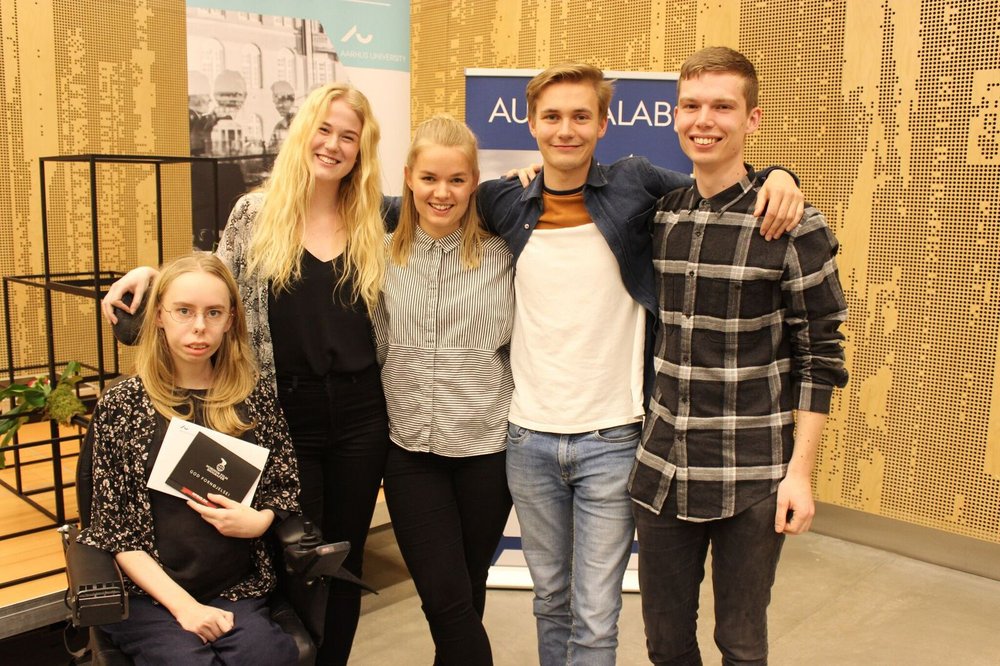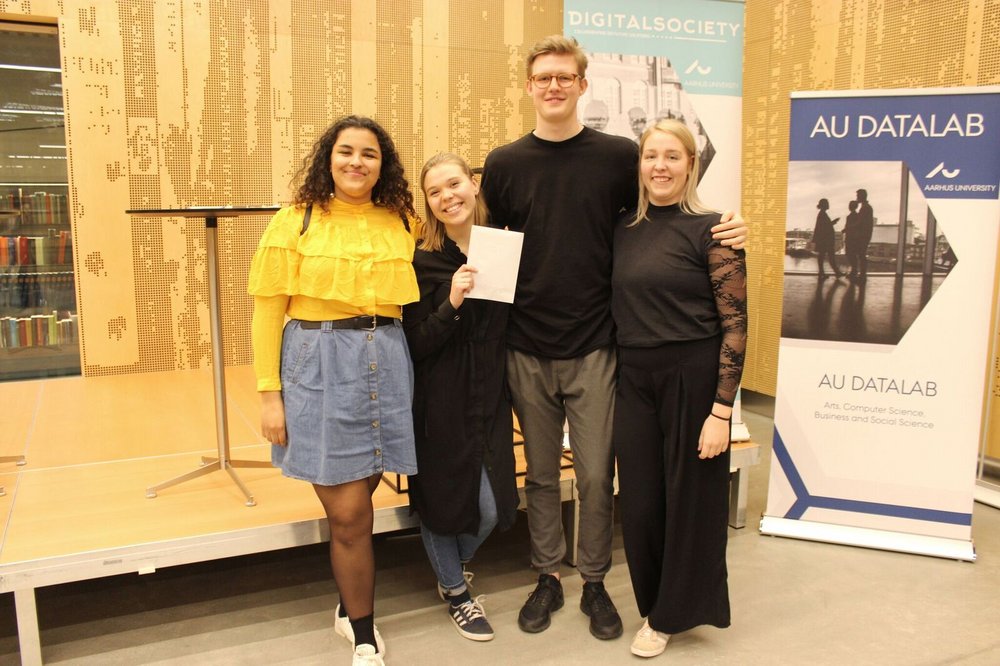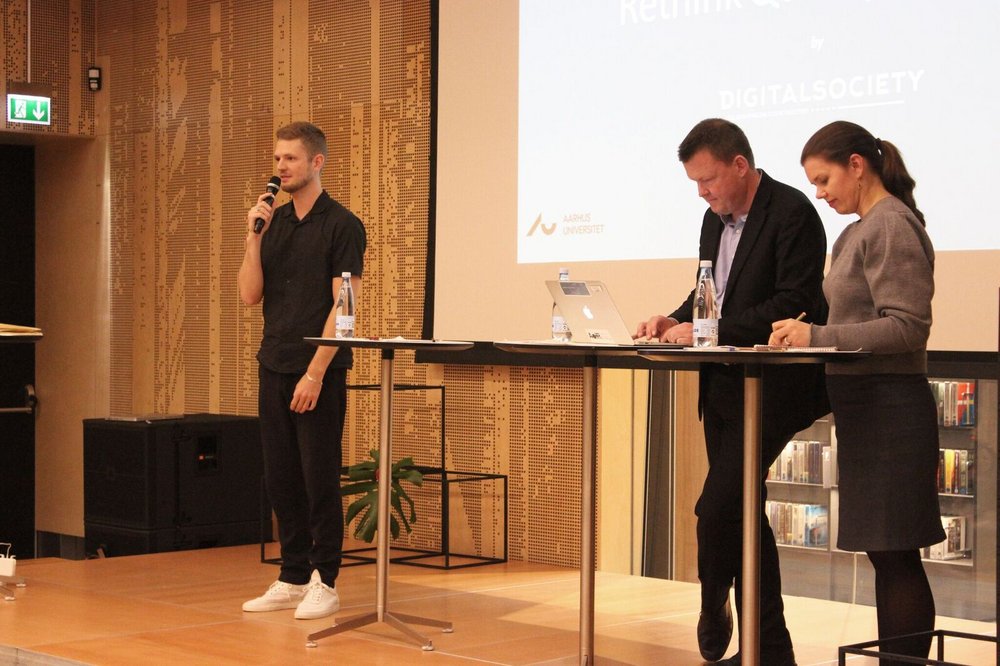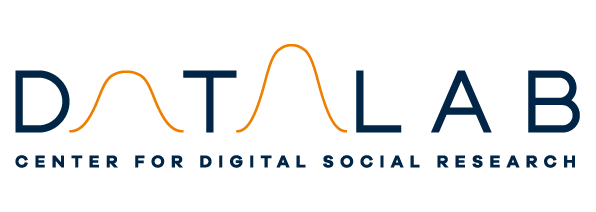Throwback to IWDK: Rethink Quality Content Online
At the Internet Week Denmark (IWDK) festival 2017, the finalists of this year's MSA Student Hackathon presented their solutions to how quality content online should be rethought.
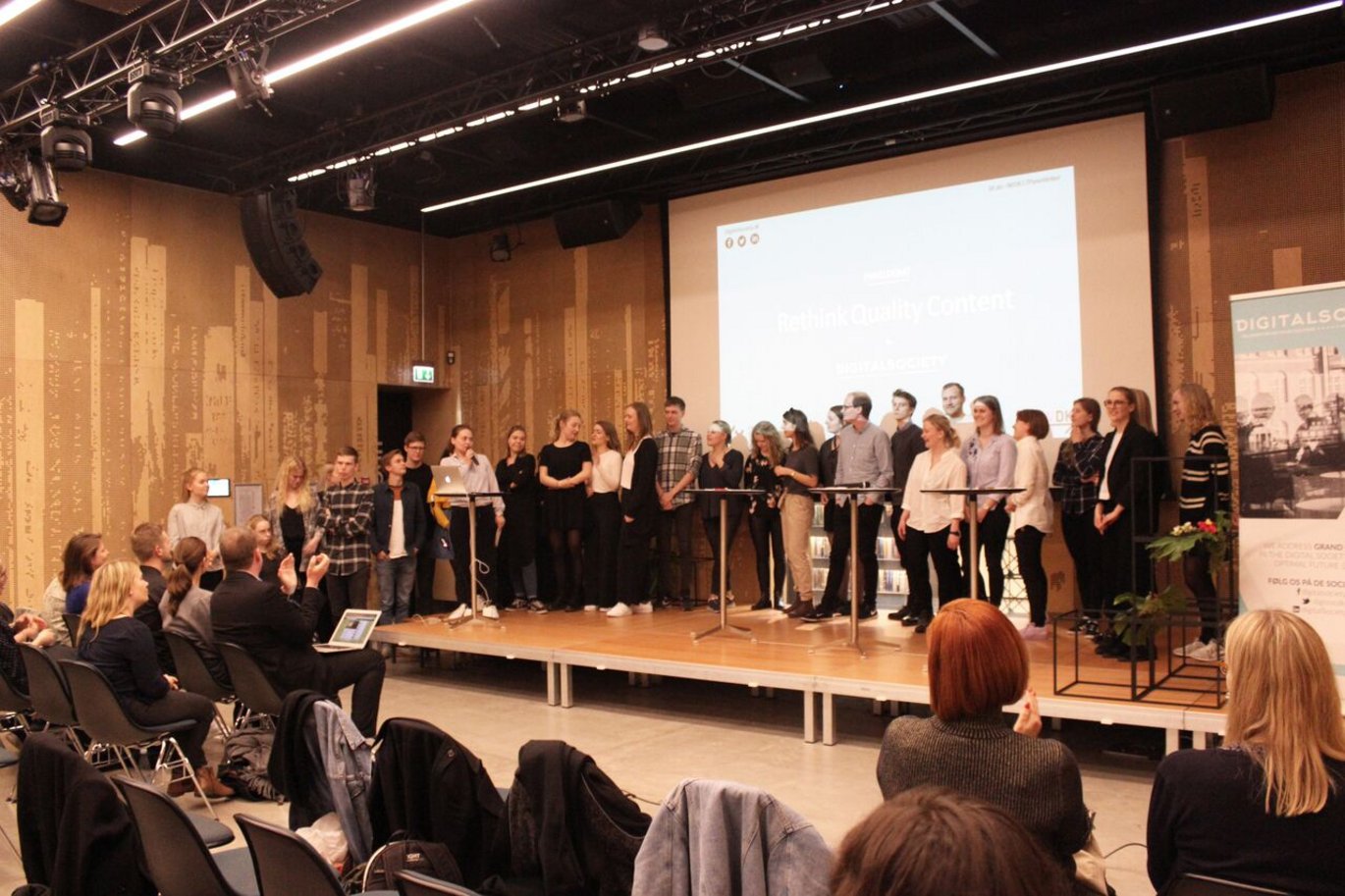
With Aarhus as European Capital of Culture, 'Rethink' is an all-embracing theme for the city and the Central Denmark Region in 2017 – a theme which we adopted when DATALAB dedicated the entire Friday during this year’s Internet Week Denmark festival to 'Rethink Quality Content'. Experts as well as students were involved in the challenge of creating good conditions for high-quality content on the Internet.
Case Competition and Panel Debate
The Friday began in Store Sal (the large hall) at DOKK1 in Aarhus, Denmark with presentations by 4th semester Media Studies students from Aarhus University of their solutions to issues submitted by Nordjyske Medier and Tattoodo – two very different media companies with different types of content, but which are both challenged by the conditions brought about by content primarily being consumed on the social media.
Later in the afternoon, there was a panel debate with experts discussing how the conditions for high-quality content are ensured today, as content producers are under an obligation to create reliable, profitable and attractive content.
The case compeition and panel debate was organised within the framework of Digital Society innovation network project.
Students apply their knowledge to issues facing industry
Nordjyske Medier and Tattoodo had both submitted issues for the students to work with in class in the weeks leading up to Internet Week Denmark.
Nordjyske Medier submitted issues relating to the requirement to create content that is adapted to the social media while also having democratic value and a high degree of credibility.
Tattoodo questioned how user-generated, high-quality content can be made profitable when social media take a large share of the money made from advertising and even control what content is shown and to whom.
Among the 18 groups with a total of 90 students participating in the MSA Student Hackathon, three winners were elected who presented solutions offering innovative business concepts and proposals for new ways of exploiting technology:
- The North Jutland news satellite
- Facebook hosts from northern Jutland
- Find the missing ink
The winners were elected by a panel of judges comprising heads of innovation Katja Bundgaard and Mette Kjul Pedersen from Nordjyske Medier, Tattoodo’s COO Caspar Høgh, business consultant Hannu Vangsgaard as well as media researcher Bente Kalsnes from Oslo and Akershus University College of Applied Sciences and Anja Bechmann, associate professor from Media Studies, Aarhus University.
This is the first time DATALAB links teaching, business cases and Internet Week Denmark via a hackathon for students. Last autumn, the format was tested on a small scale within the university’s walls, but this year, we decided to take the next step and make it an integral part of Internet Week Denmark:
“It’s important that the students become part of Internet Week Denmark, which is aimed at placing focus on and strengthening the digital transformation in society, as that is what the students will be working with after completing their studies,” says Anja Bechmann, advisory board member of Internet Week Denmark and associate professor at Media Studies, Aarhus University.
In the weeks leading up to Internet Week Denmark, the students worked with the issues submitted by the companies as part of the teaching on the financial and regulatory conditions which media companies are subject to.
On Thursday 20 April, the initial introduction round took place, where the finalists were elected for the final round in Store Sal at DOKK1 the following day.
In addition to learning relevant theory, the students were introduced to ideation and presentation techniques.
Experts discuss high-quality content on the Internet
After the students had presented their solutions in the final round, the experts gave their views on how we can create the proper conditions to ensure the existence and accessibility of high-quality content.
In her opening of the debate, our partner and moderator, the owner of Livemagasinet, Julie Krog Vistisen, asked a basic question in this connection about what constitutes high-quality content. The three debaters came up with slightly different suggestions:
Lasse Ribergård Rasmussen, project manager at the gazelle company Bloggers Delight, argued that the biggest source of quality is relevance to the reader, at least when it comes to user-generated content on blogs, YouTube and other social media – and whether or not the content is sponsored is less important.
Research director at the Danish School of Media and Journalism, Jakob Linaa Jensen, emphasised how important it is that we as human beings are constantly being challenged and gaining knowledge. Therefore, he highlighted the ability of content to both entertain and inform as a quality, and mentioned DR’s Danish drama series Historien om Danmark as an example.
Associate professor in Digital Journalism at Olso and Akershus University College of Applied Sciences, Bente Kalsnes, claimed that quality is subjective and can be found at various levels, but that credibility is always crucial. Kalsnes used the Norwegian youth drama series SKAM on NRK as an example of high-quality content, because the series is realistic and both raises and answers important questions in young people’s lives, even though there is a lot of alcohol and crime involved.
Referring to specific research results, Kalsnes argued that when it comes to journalistic content which is always seen from a certain perspective, the credibility lies in the actual facts presented.
Can high-quality content be sponsored?
A key factor in the debate was whether high-quality content can be sponsored, which is often the case on blog media, but also increasingly in daily newspapers using native advertising.
In a time where everyone finds it hard to make money on content, it must, according to Bente Kalsnes and Lasse Ribergård Rasmussen, be acknowledged that there are content producers who can actually create a profitable business by publishing sponsored content.
In Jakob Linaa Jensen’s view, the increased commercialisation of content means that a rosy, untrustworthy picture is being painted on the Internet, where criticism is non-existent. He said that criticism is a precondition for establishing trust, and it is therefore crucial that content producers have the courage to be critical, even if it will sometimes make them unpopular.
In addition, Linaa Jensen pointed out how important it is that regulations are not imposed on what content can be uploaded to the Internet, because the definition of high-quality content which must underpin such regulations can never be unambiguous and carried out by a single player.
Help create focus on issues facing digital society
At last year’s Internet Week Denmark festival, DATALAB organised a panel debate about adblocking with a view to strengthening the dialogue on how adblocking can be solved, with the participation of all parties involved: users, daily newspapers as well media and advertising agencies.
With the innovation network project Digital Society, DATALAB has an interest in placing all challenges related to our digital society on the agenda as well as achieving greater focus and facilitating dialogue and cooperation on this subject across research and business sectors.
What challenges do you think should be added to the agenda?
Contact us with your input or proposals for how we can work together.
